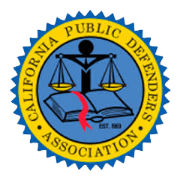
You probably think of violent offenses when you hear the phrase “white-collar crime”. However, the truth is far more intricate. “White-collar crime” refers to non-violent crimes, usually committed by individuals in positions of trust within businesses or government. Some examples of white-collar crime include financial fraud, embezzlement, or insider trading. Although these crimes might not involve physical harm, their impact can be just as devastating.
Think about it, losing your life savings because someone manipulated the stock market or having your identity stolen to funnel company funds. These are very real consequences of white-collar crime. This type of crime impacts everyone, from individuals and businesses to the entire economy.
Table of Contents:
- Unmasking the Culprits: Who Commits White-Collar Crime?
- Delving into Different Types of White-Collar Crimes
- Peering into the Complexities of a Ponzi Scheme
- Safeguarding Yourself: Taking Action Against White-Collar Crime
- Conclusion
Unmasking the Culprits: Who Commits White-Collar Crime?
You might imagine a stereotypical criminal when thinking about white-collar crimes. However, these criminals often don’t fit that image. They’re typically well-educated and hold respectable positions, making them seem trustworthy. Unfortunately, these individuals abused their power for personal gain.
A Look at the Numbers
The FBI says white-collar crime costs the United States over $300 billion yearly. This staggering amount reflects the vast scale of these crimes and their impact. From small-time scams to massive corporate fraud schemes, the consequences ripple through society.
These crimes undermine financial systems and destroy public trust, affecting everyone. In addition, white-collar crime cases involve complex financial transactions, making them difficult to investigate and prosecute.
Delving into Different Types of White-Collar Crimes
White-collar crime encompasses a broad spectrum of offenses. Here’s a glimpse into some of the most common examples.
1. Corporate Fraud
Imagine a company cooking their books, inflating profits to deceive investors. This is corporate fraud, which is one of the most well-known forms of white-collar crime. It can have severe consequences for businesses and shareholders.
2. Money Laundering
Imagine criminals disguising illegally obtained funds as legitimate income through money laundering. This complex process often involves layers of financial transactions to hide the source of “dirty money”. Money laundering is a federal crime that can result in significant prison sentences.
3. Securities and Commodities Fraud
Ever gotten an offer that sounds too good to be true? That’s how many securities and commodities fraud schemes start. Whether manipulating stock prices or running Ponzi schemes, perpetrators exploit people’s desire for quick and easy money.
This leaves victims financially devastated. Securities fraud involves buying or selling securities based on material, nonpublic information.
4. Healthcare Fraud
Healthcare fraud isn’t just about billing for services never rendered. It encompasses a wide range of illegal activities within the healthcare system.
These activities can be scams like billing for unnecessary tests or providing substandard care to reap insurance premiums. Healthcare fraud also includes selling counterfeit medication.
5. Identity Theft
You’ve probably taken steps to safeguard your social security number and credit card information, and for good reason. Identity theft is a pervasive white-collar crime in which criminals steal this information in several ways.
Thieves steal information in many ways, from hacking into databases to phishing scams. They then use it to open accounts in your name.
Peering into the Complexities of a Ponzi Scheme
Let’s use an infamous example to understand Ponzi Schemes further—the Madoff investment operation. It’s a chilling illustration of white-collar crime and how trust and deception can have dire consequences.
Bernie Madoff, a seemingly respectable financier, created a Ponzi scheme that defrauded investors of billions of dollars. This elaborate system relies on using funds from new investors to pay returns to older investors, rather than generating profits from actual business ventures.
It created an illusion of success when the foundation was built on lies. The Justice Department recovered more than $568 million for victims of the Madoff Ponzi Scheme. However, the impact of such scams goes beyond the financial losses; it devastates trust and leaves many questioning the integrity of financial systems.
Safeguarding Yourself: Taking Action Against White-Collar Crime
You’re not powerless against white-collar crime. There are a few things you can do to protect yourself. Be wary of unsolicited offers that guarantee high returns. Always research thoroughly before making any investments, checking the backgrounds of individuals and companies involved.
Be vigilant about phishing emails or suspicious phone calls asking for personal information. Shred sensitive documents before discarding them, and regularly monitor credit reports for unusual activity.
Where To Report White-Collar Crime
If you or someone you know becomes a victim of white-collar crime, report it. You can report it to these authorities:
- Report internet-enabled fraud schemes to ic3.gov.
- Report fraud to the Federal Trade Commission.
- Report Medicare Fraud.
- Report Identity theft to the IdentityTheft.gov Website.
- Get a job with the FBI or submit tips to the FBI.
You can also report Intellectual property theft, such as copyright infringement or trademark infringement, to the appropriate authorities. The Commodity Futures Trading Commission (CFTC) investigates and prosecutes violations of the Commodity Exchange Act, including commodities fraud.
Conclusion
White-collar crime may not grab headlines like violent offenses. But, it’s crucial to remember that this crime impacts lives. By understanding different forms, staying vigilant, and reporting suspicions, we can help combat white-collar crime. Together, we can protect ourselves and create a fairer and more secure world.





